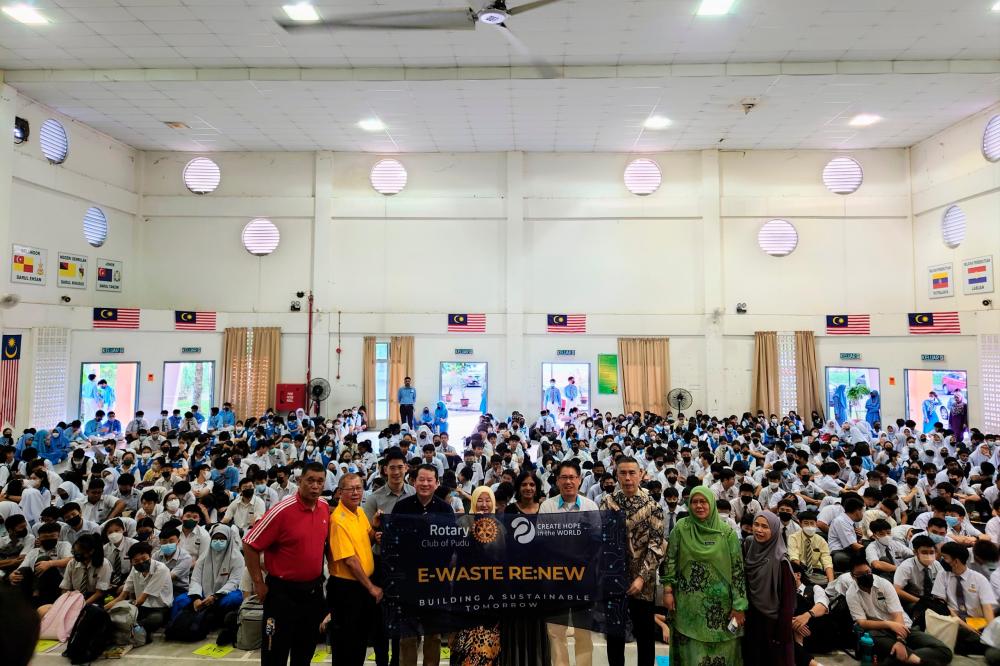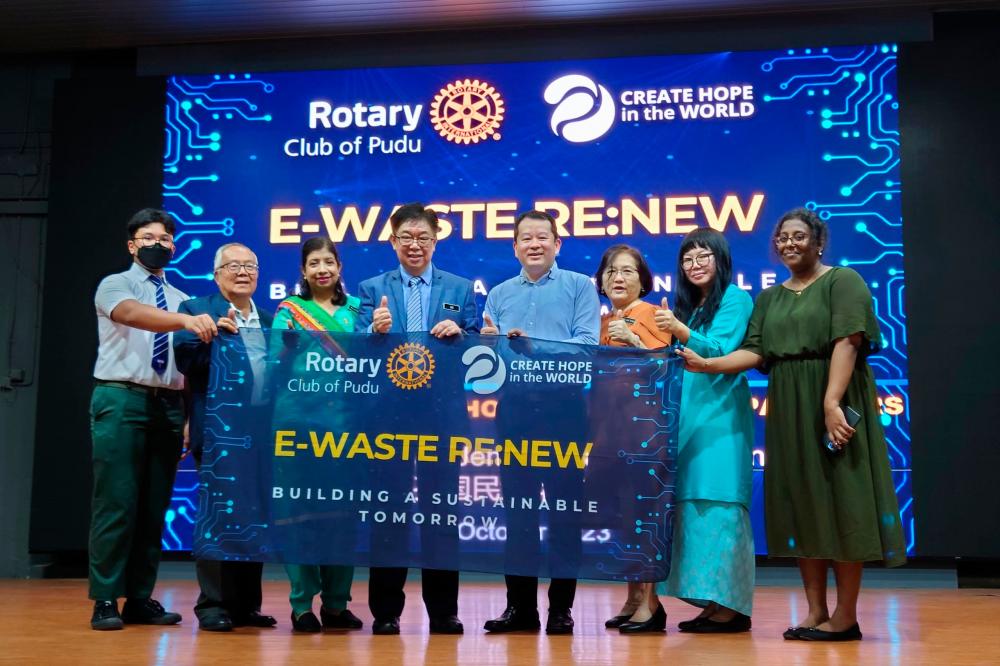PETALING JAYA: The e-waste Re:New, Building a Sustainable Tomorrow programme was launched by Rotary Club of Pudu and their collaborators on Oct 9 at SMJK Confucian.
The program spanned for three weeks, commencing on Oct 13 and concluded on Nov 3. It was organised in collaboration with TM Enviro Industries, Knight Frank Malaysia, and secondary schools’ Interact Clubs sponsored by the Rotary Club of Pudu.
This programme’s primary objective was to increase the local communities’ awareness on e-waste (discarded, recycled or refurbished electrical and electronic products), said Terence Lee Meng Chen, president of Rotary Club of Pudu.
“We also would like to donate or replace necessary equipment for the participating schools by using the funds gained from the e-waste recycle program and the sponsors.
“There is a lack of awareness in our local communities on the need and practice of e-waste segregation particularly at households and schools.
“Due to that, schools are set-up to be the collection centre of e-waste products,” Lee said.
According to the Department of Environment (DOE), in Malaysia, e-waste is categorised as scheduled waste under code SW110 in the First Schedule of the Environmental Quality (Scheduled Wastes) Regulations 2005, which is enforced by the DOE according to Environmental Quality Act 1974.
In 2021 alone, DOE said they have collected more than 800 tonnes of e-waste products that consists of television, washing machines, mobile phones and many more.

Lee said some examples of the e-waste products that this programme will collect are laptops, tablets, cables and even big household items such as fridge and television.
“Each of the products will be categorised with their corresponding value, RM12 for a laptop, RM1 for every kilogramme of cables and so on.
Lee said the identification of project partners is the first step in starting up this programme as well as setting up appointments with licensed e-waste management companies to provide disposal management.
“After education and awareness sessions are held at schools, collection and tabulation of e-waste items are conducted.
“An appointed contractor will dispose of the items as per Department of Environment guidelines while some items that can be renewed will be repaired and resold.”
“All e-waste collected at the individual collection centres (schools) will contribute towards the school’s collection target. “
Lee said once this target is met, the collected items will be exchanged for a cash equivalent at the end of the program, based on the price list provided by TM Enviro Industries.
“The schools can enlist their required teaching aids and equipment according to the amount of money they have tabulated and the Rotary Club of Pudu will donate the required items to the schools.”
Lee said the aim of this programme is to achieve a tonne of e-waste collection during the first 3 weeks of campaign period and the value of e-waste products worth RM15,000.
“As for the funding and sustainability of the programme, it is funded by the Rotary Club of Pudu’s Community Service Fund, with the sponsorship from corporate and individual donors and in addition the waste-for-cash collections from the appointed contractor.
“The motivation to start this programme is due to the availability of guidelines form the regulators and government for e-waste products and the disposal methods applied by licensed e-waste management companies.”
Lee said that not only students and teachers from the participating schools are able to participate in the programme, the public are also able to join in as well.
“However, the public will have to send their e-waste products to designated collection centres or schools during the programme’s period.
When asked about whether e-waste management is receiving adequate attention from relevant authorities, Lee said for the past decades, the attention was focused mainly on other materials such as paper, plastics and glass.
He said that the participating schools will continue with the collection efforts for the new school term in 2024.
“The programme also can be expanded to other states or schools collaborating with other Rotary Clubs in the communities and even the corporate sector as well as other associations.”









